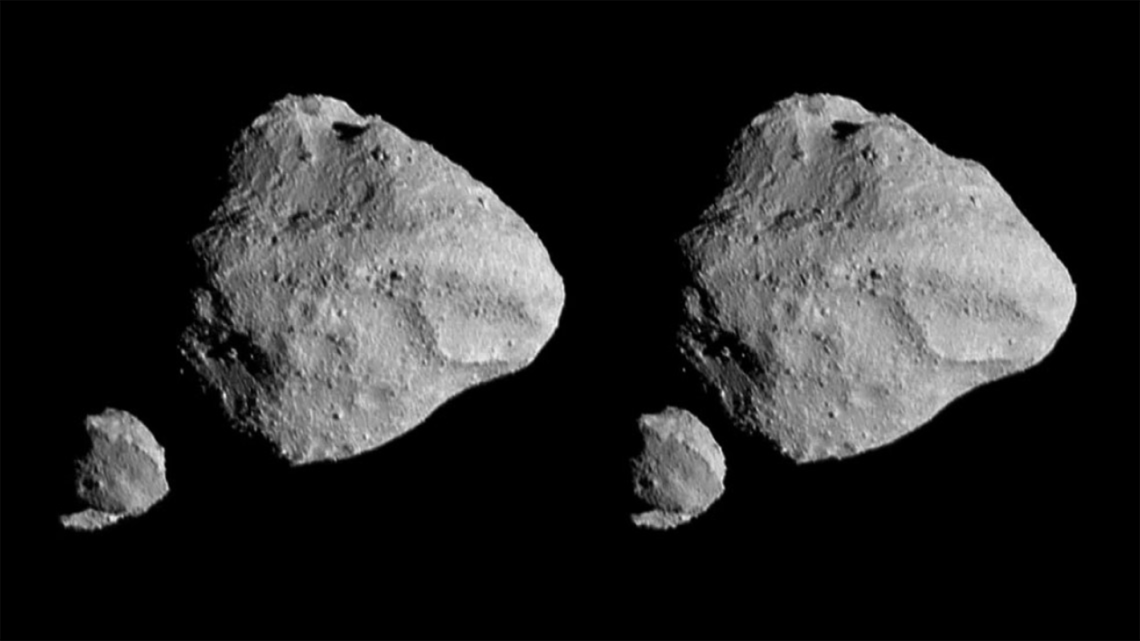A newly discovered asteroid is a toddler–in space years. The moonlet circling the small asteroid Dinkinesh named Selam is about 2 to 3 million years old. Scientists arrived at this age estimate using new calculation methods that are described in a study published April 19 in the journal Astronomy and Astrophysics.
Selam is nicknamed “Lucy’s baby,” after NASA’s Lucy spacecraft discovered it orbiting another asteroid in November 2023. The Lucy mission is the first set to explore the Trojan asteroids. These are a group of about 7,000 primitive space rocks orbiting Jupiter. Lucy is expected to provide the first high-resolution images of these space rocks. Dinkinesh and Selam are located in the Main Asteroid Belt between Mars and Jupiter.
Discovering a tiny moonlet was a surprise. According to study co-author and Cornell University aerospace engineering doctoral student Colby Merrill, Selem turned out to be “an extraordinarily unique and complex body.” Selem is a contact binary that consists of two lobes that are piles of rubble stuck together and is the first of this kind of asteroid ever observed. Scientists believe that Selam was formed from surface material ejected by Dinkinesh’s rapid spinning.
[Related: NASA spacecraft Lucy says hello to ‘Dinky’ asteroid on far-flying mission.]
“Finding the ages of asteroids is important to understanding them, and this one is remarkably young when compared to the age of the solar system, meaning it formed somewhat recently,” Merrill said in a statement. “Obtaining the age of this one body can help us to understand the population as a whole.”
To estimate its age, the team studied how Dinkinesh and Selam moved in space–or its dynamics. Binary asteroids like this pair are engaged in a galactic tug-of-war. Gravity that is acting on the objects is making them physically bulge and results in tides similar to what oceans on Earth have. The tides slowly reduce the system’s…
Read the full article here

